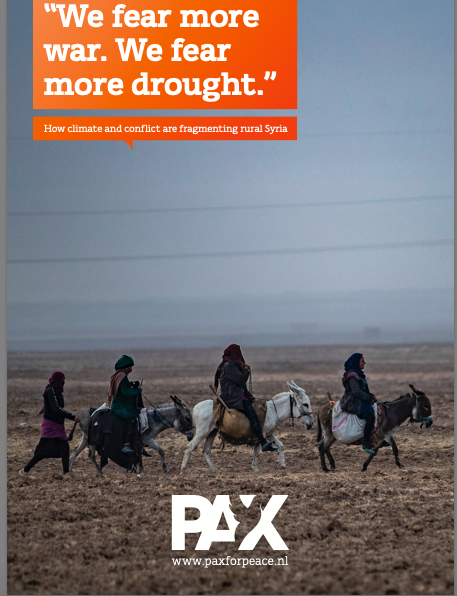Syria: Water Scarcity Assessed At A Granular Level
Rural Communities In Syria Hardest Hit
25 Feb 2022 by The Water Diplomat
DAMASCUS, Syria

A new report published by Pax for Peace, details the gruelling impact that climate change is having on members of the poorest Syrian communities.
The report, titled ‘We fear more war, we fear more drought’, was published on 16 February and provides a detailed analysis of the effects of climate change for Syrian pastoralists based on interviews and wider data on climate and socio-economic development.
Prolonged periods of reduced rainfall in Syria across recent years has had a direct impact on vegetation growth and livestock farming which has taken a toll on the livelihood of herders and farmers, who are often among the poorest communities.
Data from the report shows how climate change is exacerbating the destructive effect that years of war has had on agricultural infrastructure and the displacement of herders and farmers in the region.
Lower water influx from Turkey has resulted in declining water levels in Lake Assad which, coupled with climate change and rising global temperatures, has dramatically reduced water access in Syria for irrigation, hydroelectricity, and personal use for millions of civilians.
Erratic weather conditions have also brought down the price of livestock which has pushed many pastoralists deeper into poverty, as evidenced by one shepherd who said in an interview with PAX: “if there is no rain, there is no future”.
Similarly, several interviewees expressed their desire to migrate due to being unable to see a future for them in Syria, in the absence of support from existing local authorities who lack sufficient finances, capacity, and expertise to address these environmental challenges.
This brief insight into the effects of water scarcity on Syria’s most vulnerable groups, highlights the need to prevent further socio-economic decay which is likely to result in greater instability and violence in a society already exhausted from conflicts and poverty.
